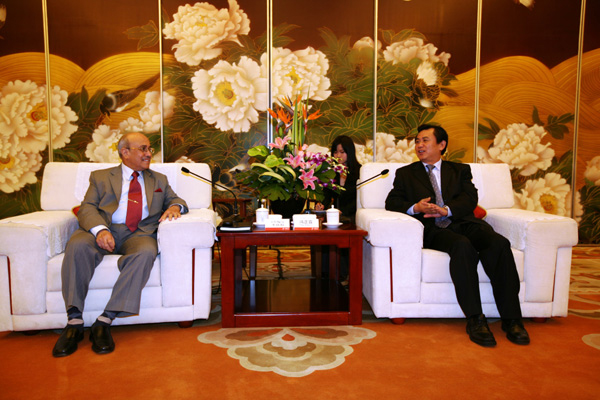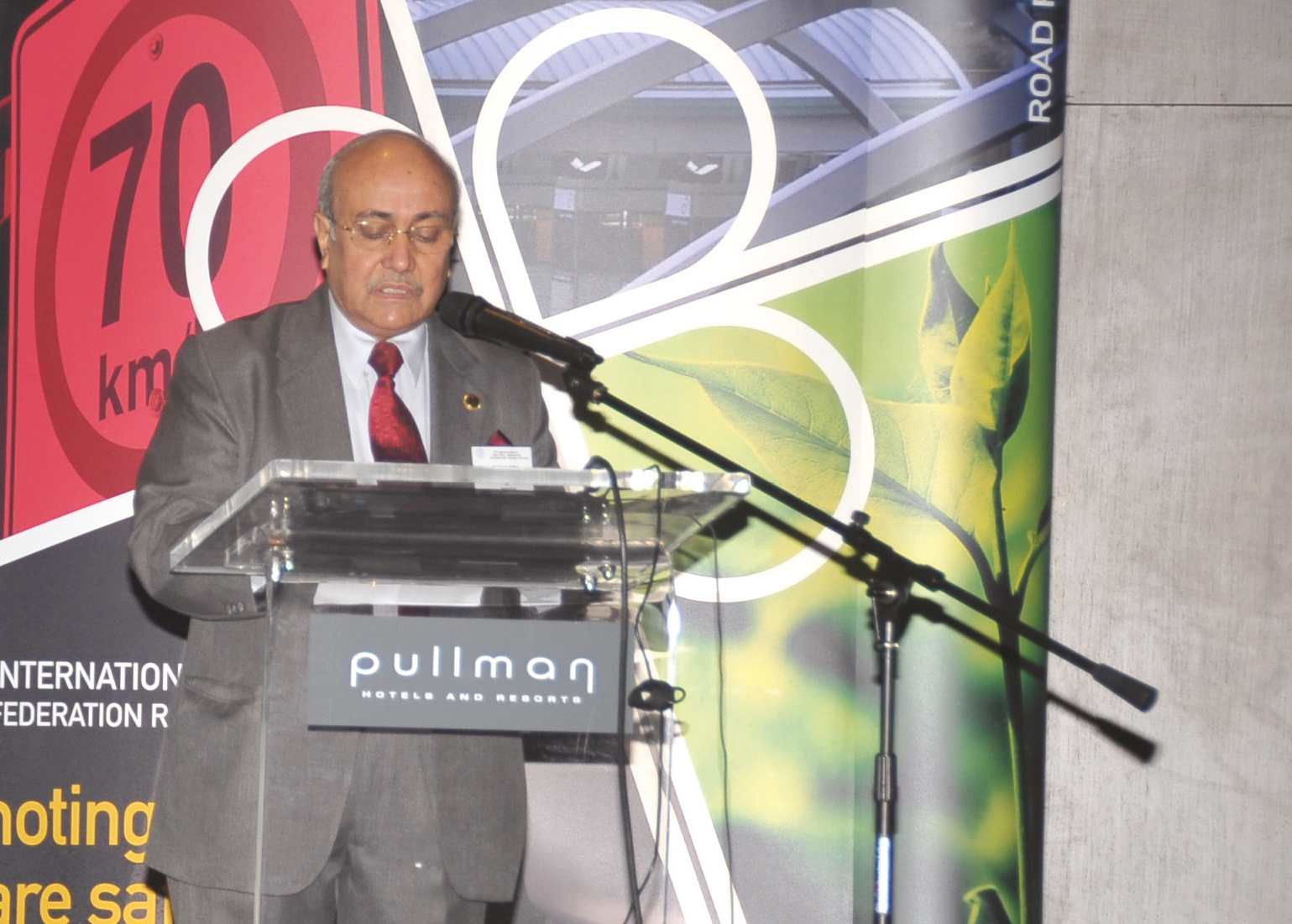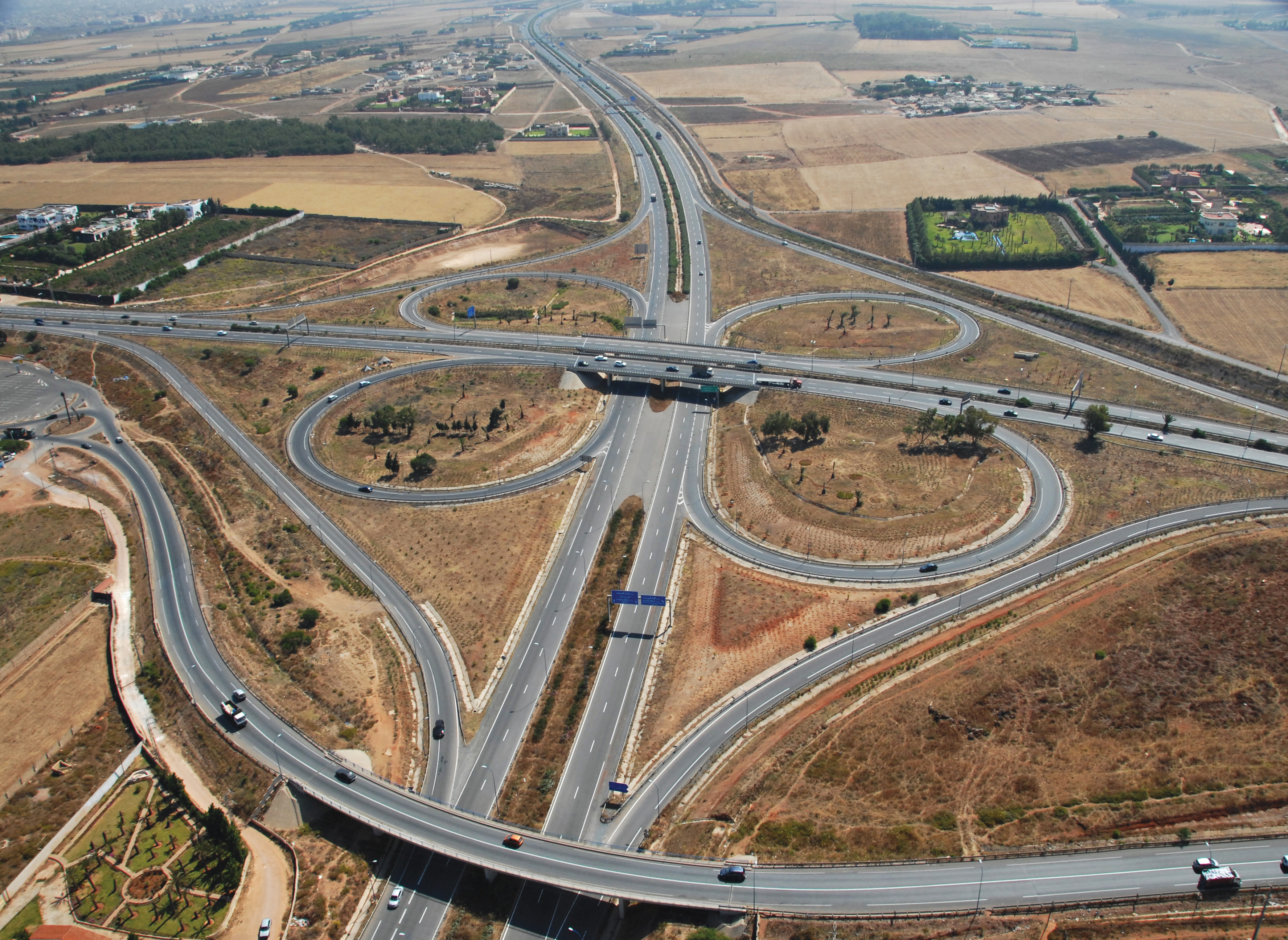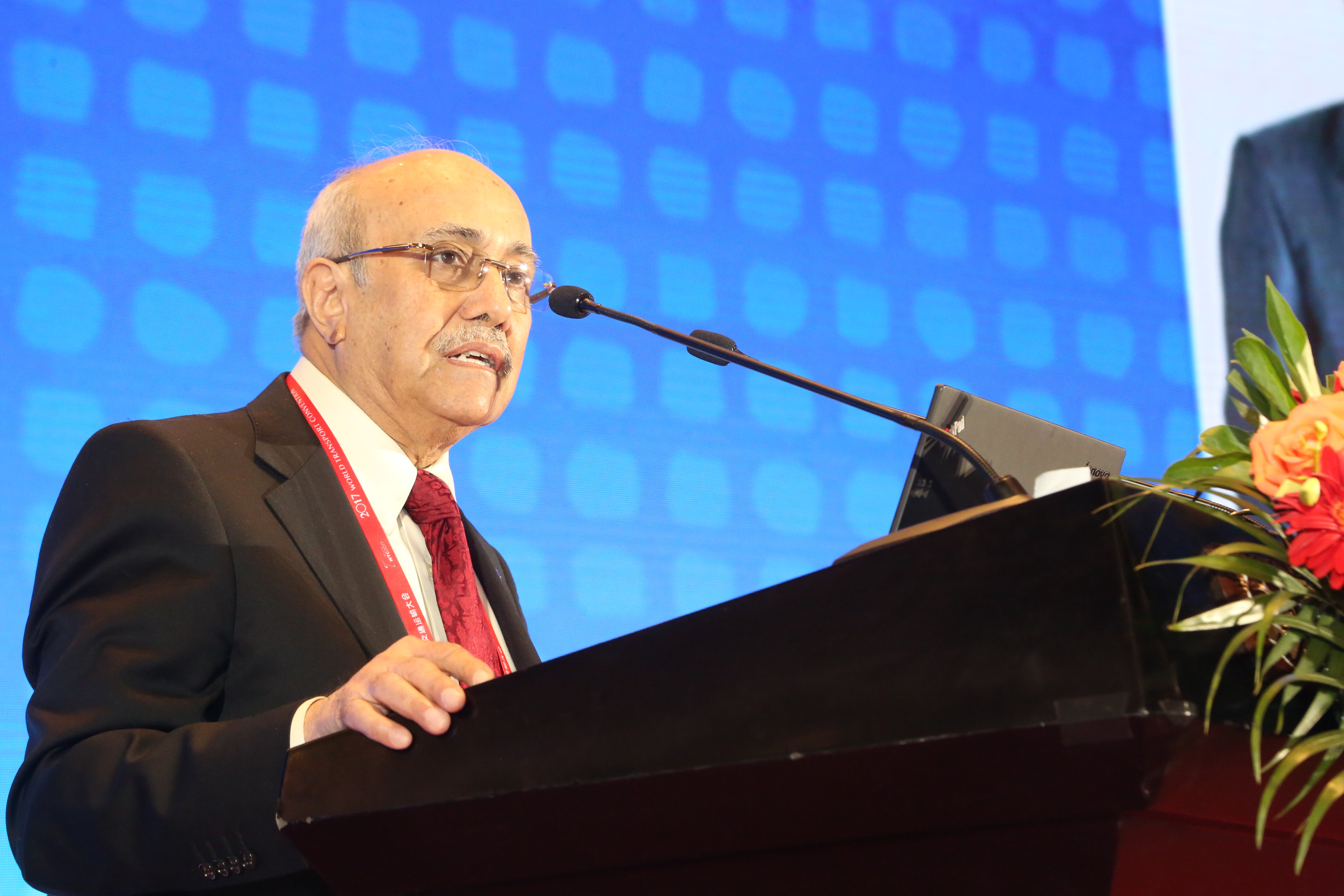
IRF joins with key Chinese transport authorities to lead the way in efforts to make sustainable rural mobility, transport and access a reality for millions throughout the world.
Jointly organised by
“IRF has been visionary in organising this event,” stressed Mr Liu Xingping, Deputy Director of the Academy Department of China Science & Technology Association, addressing the audience of almost 400 delegates, drawn from 30 countries worldwide.
The convention focused on a comprehensive range of issues relating to rural roads, and while the benefits of improving rural roads were apparent to all, the constraints, notably in terms of the human resources and financial capacity required to construct, maintain and manage them, were acknowledged by the assembled experts as universally problematic.
China and India, in particular, have been carrying out massive rural road construction programmes, involving billions of dollars of investment. Both countries are currently exploring a variety of ways to safeguard these critical investments, as well as optimise their associated benefits.
In 2000, the Indian Prime Minister pledged: “India must shine for the poor. India must shine equally in the cities and the villages. Villagers should be able to reach the rest of the world, and the rest of the world must be able to reach them with great ease”.
China demonstrably echoes this ambition, with the Chinese Rural Road Programme adopting ‘Asphalt and Concrete Roads for our Peasants’ as is its priority and slogan.
As highlighted by Feng Zhenglin, Vice Minister of the Chinese Ministry of Transport in his opening speech, 94% of villages in China's eastern and central regions are today accessible by road, and the figure for villages in western regions is 98%. China has made remarkable progress in improving rural transportation through a programme of massive road construction, making public transportation available to more and more rural residents.
According to Vice Minister Feng Zhenglin, buses currently serve some 98% (35,000) of China’s towns and nearly 88% (553,000) of its villages.
The benefits of road investments are today well known and have been widely proven. Roads have helped to improve literacy, health and quality of life. The services and opportunities they open have reduced child mortality; enabled more young people, notably girls, to attend schools, and promoted more productive cropping patterns, resulting in significantly increased incomes for average households.
Such sweeping benefits are just a few of the tangible benefits brought about by initiatives to improve rural road connectivity among more remote and poorer communities.
Indeed, it is being increasingly acknowledged in development circles that without effective rural transport systems, the achievement of the UN Millennium Development Goals and, indeed, all rural development and poverty reduction initiatives will forever be severely compromised, and agriculture and growth restrained.
The convention offered a rich array of examples of best practices from different parts of the world that could be immediately emulated and applied to (quite literally) help build new roads and new directions towards fulfilling the Millennium Goals, and thereby immeasurably boost global efforts to improve living standards and quality of life for millions of people throughout the world.
Road safety
The programme offered an excellent mix of Chinese and international presentations, and notably featured a high-level panel discussion specifically convened to address the vital challenges of identifying the financing, so urgently needed, for the efficient construction and maintenance of rural road networks. This comprised leading representatives from the
In a high-level bilateral discussion with Mr K.K. Kapila, the Chairman of
Mr Kapila urged the Chinese government to strengthen ties between IRF and the Ministry of Transport, and to commit actively to road safety. Both parties have agreed energetically to pursue the extremely promising and constructive dialogue thus instigated.
The Vice Governor of Shandong Province, Mr Cai LiMin, meeting bilaterally with IRF officials K. K. Kapila, Sibylle Rupprecht and Susanna Zammataro, also confirmed that China was committed to the development of a low carbon society and looked forward to follow up discussions on the potential of CHANGER, the pioneering software designed by IRF for the calculation and modelling of greenhouse gas emissions from road construction projects.
In a wider context, participants were unanimous in their praise for the dedicated efforts and commitment of Shandong Province that were hugely instrumental in making the convention such a productive and resounding success, as well as a highly enriching professional and cultural experience.
Comprehensive site visits gave delegates an opportunity to review at first hand the advances and achievements of Chinese rural road construction.
With some 75 million inhabitants, Shandong is one of the most populous Provinces in China. The tours took in rural roads, rural settlements and bus stations, and at each stop participants were introduced to major developments within the province, and provided with detailed technical briefings.
The province’s rich cultural heritage was in evidence during the splendid gala event organised in honour of (to echo the words of Confucius, who was born in the province) all the “friends coming from afar” to attend the convention.
The evening featured a troupe from the Beijing Opera, as well as a spectacular array of traditional dance, singing and musical performances.
Closing the convention, Sibylle Rupprecht, Director General of IRF Geneva, pledged that IRF’s commitment to rural roads would be continued and extended over time.
In particular, she announced that: “To build on the momentum of this event, and to ensure ongoing innovation and knowledge sharing, we are looking into the opportunity of forming an Asian Community of Practice for Rural Mobility, Access and Transport. This would allow regional practitioners and decision-makers to continuously exchange, update and improve their working knowledge of the issues, challenges and opportunities involved in the development and management of truly sustainable rural road systems.” Indeed, among the participants there was consensus regarding the need for practitioners and decision-makers to continue to meet on a regular basis, not only to share rural access, mobility and transport knowledge and experience but also to identify effective ways to narrow knowledge gaps and respond to identified training needs.
The Chinese and Indian delegations expressed interest in exploring the possibility of co-hosting these events on an annual basis, alternating the hosting responsibilities between the two countries. By offering to act as secretariat for this new initiative, IRF has further cemented its long-term commitment to the cause of rural roads and global development.
Moreover, to ensure that the invaluable knowledge and experience exchanged during the event can be readily disseminated throughout those regions of the world where it is most needed, IRF Geneva will make the full proceedings of the conference available on its knowledge website for the global Transport Knowledge Partnership (gTKP) programme (www.gtkp.com).
Key papers and presentations will also be adapted for inclusion in a special two-volume edition of the IRF Bulletin devoted exclusively to all aspects of rural roads research and best practice. The first volume is scheduled for publication in December 2010, and the second in 2011.
In keeping with IRF’S integrated, interdependent approach to issues, the new Bulletins are designed to act as companion volumes to the current issue of the Bulletin devoted to urban mobility.
This interlinking of issues and holistic approach was reflected during the convention in China, which also featured, in the fringes, a one-day gTKP Workshop on Environment and Urban Mobility.
This technical platform brought together leading international experts to share the latest state–of–the–art developments in the field of urban mobility, as well as innovative technologies and practices to promote greener roads. The emphasis was firmly on the practical, and each session focused on specific case studies.
The workshop was linked with the main convention to ensure that rural and urban mobility are developed in harmony, while at the same time addressing the challenges of reducing global CO2 emissions attributed to transport.











